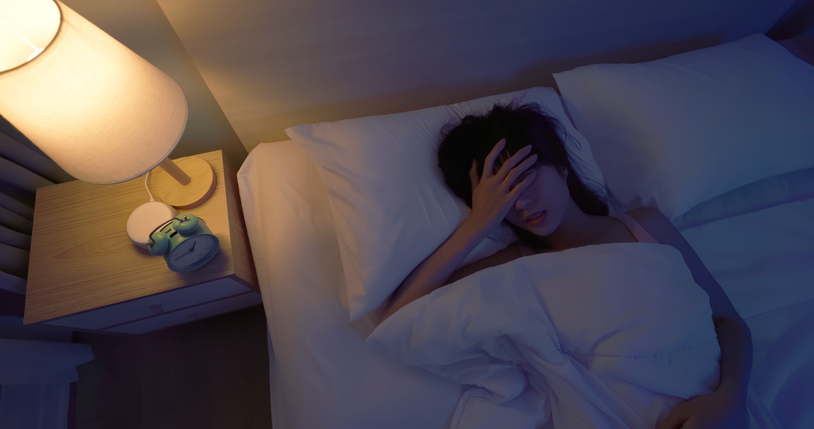Not Only Amount, But Timing of Sleep Can Be Important for Mental Health
The amount and quality of sleep we get are important to both physical and mental health. Sleep and circadian rhythm disturbances are associated with the onset and worsening of some mental health disorders – including depression, anxiety, bipolar disorder and schizophrenia.
A new research review highlights the prevalence of these disturbances in people with mental health disorders and suggests that disturbances in sleep and internal body clocks can trigger or exacerbate mental health issues. For example, insomnia is more common in people with mental health disorders than in the general population, and more than a quarter of people with mood disorders have both insomnia and hypersomnia, where they have difficulty sleeping at night, but are sleepier in the daytime.
The timing of sleep can also influence mental health, according to another new study. Individuals vary in their preferences for sleep timing (e.g., some of us are ‘night owls,’ some are ‘early birds’). However, the demands of daily life do not necessarily allow people to act on those preferences. Preferences and actual sleep timing are often misaligned.

Researchers at Stanford University looked at data on more than 73,000 adults and examined the connection between people’s sleep timing preferences (chronotypes), actual sleep timing, and mental health. While they had expected to find that those whose behavior matched their inclination would have better mental health, they found that sleeping earlier was better for mental health regardless of a person's preference for early or late.
When they compared morning types whose behavior aligned (early sleep behavior) with morning types whose behavior was misaligned (late sleep behavior), they found that those with misaligned timing had increased risk of having depression and anxiety and other mental, behavioral, neurodevelopmental disorders. When they compared evening types whose behavior aligned (late sleep behavior) with evening types whose behavior was misaligned (morning sleep behavior), they found those with misaligned timing had a decreased risk of depression.
"Going to sleep before 1 a.m., irrespective of one's natural sleep preference, can promote overall well-being.” Lok, et.al., 2024
“In clinical practice,” the authors write, “our findings underscore the importance of sleep timing and the well-known impact of sleep duration on many mental health outcomes. Instead of being viewed as a 'nuisance symptom', our findings show the very real impact of sleep timing on health.” At the policy level, they suggest that their findings point to a clear “public health message — going to sleep before 1 a.m., irrespective of one's natural sleep preference, can promote overall well-being.”
The review study, which focused on adolescents and younger adults, examined potential factors contributing to sleep-circadian disturbances and new therapeutic approaches. For example, they looked at the variability in sleep timing and length stemming from physiological changes and behaviors such as staying up late, sleeping late on weekends and getting less sleep on school nights. The authors suggest this variability can increase the risk of mental health problems.
The review emphasizes the potential of a variety of therapeutic approaches, such as cognitive behavioral therapy for insomnia (CBT-I) and light therapy in combination with medication, to improve mental health outcomes. The timing of medication, meals and exercise could also impact circadian phases. For example, while nightshift work can pose mental health risks, some research finds eating in the daytime rather than during the night could help.
References
- Lok R, Weed L, Winer J, Zeitzer JM. Perils of the nighttime: Impact of behavioral timing and preference on mental health in 73,888 community-dwelling adults. Psychiatry Res. 2024 May 15;337:115956. doi: 10.1016/j.psychres.2024.115956.
- Meyer, N. et al. 2024. The sleep–circadian interface: A window into mental disorders. Proceedings of the National Academy of Sciences, 2024; 121 (9) DOI:10.1073/pnas.2214756121
- University of Southampton. "Understanding the relationship between our sleep, body clock and mental health." ScienceDaily. ScienceDaily, Feb. 19, 2024. www.sciencedaily.com/releases/2024/02/240219153604.htm
